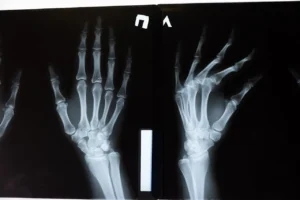
AstraZeneca showcases scientific advances across rare and malignant haematological conditions at EHA 2023
AstraZeneca will present new clinical and real-world data in multiple haematological conditions, further demonstrating its ambition to redefine care in haematology at the European Hematology Association (EHA) 2023 Hybrid Congress, 8 to 11 June 2023.
A total of 29 abstracts will feature 10 approved and potential new medicines across the Company’s haematology portfolio and pipeline spanning more than 10 types of haematological conditions and rare diseases.
This includes a presentation from Alexion, AstraZeneca’s Rare Disease group, reporting positive results from the pivotal ALPHA Phase III trial evaluating the investigational first-in-class oral Factor D inhibitor danicopan (ALXN2040) as an add-on to standard of care C5 inhibitor therapy Ultomiris (ravulizumab) or Soliris (eculizumab).1 Data show add-on treatment with danicopan significantly improved signs and symptoms of clinically significant extravascular haemolysis (EVH) in the small subset of patients with paroxysmal nocturnal haemoglobinuria (PNH) treated with C5 inhibition who are affected, allowing them to maintain treatment with standard of care and disease control.1 PNH is a rare and severe blood disorder characterised by the destruction of red blood cells, known as intravascular haemolysis (IVH), and white blood cell and platelet activation that can cause thrombosis (blood clots) and result in organ damage and potentially premature death.2-4
Gianluca Pirozzi, Senior Vice President, Head of Development, Regulatory and Safety, Alexion, said: “We look forward to presenting results at EHA from the ALPHA Phase III trial showing the potential for danicopan, as an add-on to Ultomiris or Soliris, to address clinically significant EVH, which can impact approximately 10% to 20% of PNH patients treated with C5 inhibitors, while allowing them to maintain treatment with standard of care. Additional presentations will highlight our momentum in expanding our pipeline beyond complement to address the needs of more people living with rare diseases.”
Additionally, AstraZeneca will present new data analyses, external collaborations and real-world data that will continue to display the long-term safety and efficacy of Calquence (acalabrutinib) in patients with chronic lymphocytic leukaemia (CLL), including a matching-adjusted indirect comparison (MAIC) of the efficacy and safety of Calquence versus zanubrutinib in relapsed or refractory CLL, demonstrating Calquence’s meaningfully differentiated profile.5 New tolerability and efficacy data showing the activity of Calquence in combination with bendamustine and rituximab for the treatment of mantle cell lymphoma(MCL) will also be presented.6
The Company will present data on AZD0486, a CD19/CD3 next-generation T-cell engager for patients with relapsed or refractory follicular lymphoma (FL).7 New clinical data demonstrating the emerging potential of capivasertib, an AKT inhibitor, in the treatment of relapsed or refractory non-Hodgkin lymphoma (NHL), and AZD4573, a CDK9 inhibitor, in the treatment of peripheral T-cell lymphoma (PTCL) will also be presented.8,9
Anas Younes, Senior Vice President, Haematology R&D, AstraZeneca, said: “Our data at EHA will showcase the promise of our growing haematology pipeline, reinforcing our dedication to patients with haematologic conditions. We are excited to share new Calquence analyses that will further build on our medicine’s differentiated long-term efficacy and safety profile in chronic lymphocytic leukaemia and mantle cell lymphoma. Positive clinical data on our CD19/CD3 T-cell engager and our oral AKT inhibitor, capivasertib, will showcase their potential as treatments for patients with lymphoma.”
Advancing the treatment landscape to improve outcomes for more patients with PNH
A prespecified interim efficacy analysis from the ALPHA Phase III trial of danicopan as an add-on to Ultomiris or Soliris will show its potential to improve haemoglobin levels and reduce the need for transfusions in the small subset of people living with PNH who experience clinically significant EVH, while on standard of care.1Real-world and clinical trial data will estimate that the prevalence of clinically significant EVH in patients with PNH who are receiving C5 inhibitor therapy ranges from 7% to 21%. Additionally, the data will offer insights into disease control and treatment satisfaction among patients and physicians.10An analysis of outcomes up to four years from the pivotal, Phase III trial and open-label extension of Ultomiris in C5 inhibitor-experienced adults with PNH will further support its long-term use in PNH management. The analysis will show Ultomiris maintained effective control of intravascular haemolysis with a low incidence of major adverse vascular events and demonstrated a 98.4% survival rate throughout the four-year study period.11An analysis of Korean registry data in patients with PNH will outline lactate dehydrogenase (LDH) levels, and not haemoglobin levels, as a predictor of thromboembolism, and thromboembolism as a predictor of death, reinforcing the importance of controlling terminal complement activation and intravascular haemolysis in the treatment of PNH.12
Further analyses demonstrate continued efficacy and safety for Calquence
Data will be shared from a MAIC of the efficacy and safety of Calquence versus zanubrutinib in relapsed or refractory CLL, based on data from the ASCEND and ALPINE Phase III trials.5An interim safety analysis will display the safety and treatment adherence with Calquence in patients more than 80 years old or frail patients with CLL in an ongoing investigator-initiated Phase II trial.13A Phase Ib trial will show the safety and efficacy of Calquence, bendamustine and rituximab in patients with treatment-naïve or relapsed or refractory MCL, and support further investigation to determine if this could be an alternative treatment option for patients with MCL.6
Emerging pipeline molecules and treatment strategies show therapeutic potential
Interim results for AZD0486 (TNB-486), a CD19/CD3 next-generation T-cell engager, will display a high complete response (CR) in patients with relapsed or refractory FL with a manageable safety profile in an ongoing Phase I trial.7A Phase II, open-label, multicentre trial (CAPITAL) of capivasertib, a potent, oral AKT inhibitor in patients with relapsed or refractory B-cell NHL will show the molecule had single-agent activity and a manageable safety profile in patients with heavily pretreated relapsed or refractory FL and could be a potential treatment option in NHLs more broadly.8Efficacy and safety results from a Phase IIa study looking at the CDK9 inhibitor, AZD4573, in patients with relapsed or refractory PTCL will show encouraging clinical activity as a monotherapy, including three CRs and one complete metabolic response after initial progressive disease.9Preliminary ongoing Phase I/II safety and tolerability results of AZD0466, a Bcl-2/Bcl-xl inhibitor, will show it is tolerated as a monotherapy for patients with relapsed or refractory acute leukaemia.14
Improving understanding and management of debilitating rare diseases
Results through eighteen months on safety, tolerability and biomarker data will be presented from a Phase II trial evaluating CAEL-101, a potentially first-in-class monoclonal antibody, in adults with light-chain (AL) amyloidosis.15An encore presentation will highlight the design and methodology of two Phase III trials evaluating the efficacy and safety of CAEL-101 compared to placebo to reduce amyloid burden in treatment-naive patients with AL-amyloidosis with cardiac involvement.16Results from a double-blind survey of healthcare providers in Europe, North America and Australia will offer insight into factors influencing treatment discontinuation with C5 inhibitors for patients with atypical haemolytic uraemic syndrome (aHUS), including thrombotic microangiopathy response, haemolysis and kidney function.
Source link:https://www.astrazeneca.com/




